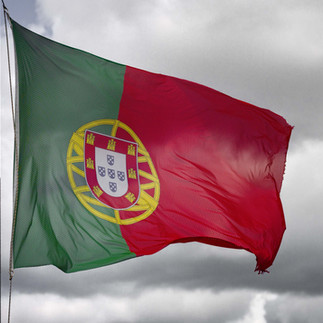HOW MUCH DO YOU KNOW ABOUT THE PORTUGUESE LANGUAGE?
- María Palomares Tarí

- 5 may 2022
- 2 Min. de lectura
Some time ago we decided to dedicate one of our posts to get in deeper about the Portuguese language and its future potential. Remember?
Today, 5 May, we are back to pay tribute to this fascinating language as it is World Portuguese Language Day! Established by the Community of Portuguese-speaking Countries (CPLP) — which brings together peoples with the Portuguese language as one of the foundations of their specific identity — today the Portuguese language and Lusophone cultures are celebrated all over the globe.
Portuguese remains, today, a major language of international communication and a language with a strong geographical projection, destined to increase. As we stated in our previous post, it is a common misconception that Portuguese is only spoken in Portugal and Brazil, because it’s actually an official language in ten countries and territories: Portugal, Brazil, Mozambique, Angola, Guinea-Bissau, Timor-Leste, Equatorial Guinea, Cape Verde, São Tomé and Principe.
But did you know that…?
Brazil is considered an agriculture and commodities powerhouse, ranking as the world’s top exporter of coffee, soybeans, sugar, and… orange juice!. Being the ninth-largest in the world, and its 200 million-strong population, make it a major destination for many international companies. See now why Portuguese just makes sense in the global economy?
Portuguese is the working and/or official language in some of the most important international organizations such as the African Union, the European Union or Mercosul. Although it is not yet an official language in the United Nations, progress has been made as Portuguese is already a working language in some UN organizations, like UNESCO.
Portuguese has already been taught for three years at the International School of Languages of the UN, in New York, through a joint Portuguese/Brazilian program.
Portuguese is also spoken by about 678,000 people in the United States, with large communities of of speakers in the states of Massachusetts and Rhode Island. Brazil is also the 12th-largest trading partner of the United States.
Brazilian Portuguese varies from European Portuguese in several respects, including several sound changes and some differences in verb conjugation and syntax. Pronunciation is also one of the main differences between the languages: Brazilians speak vowels longer and wider, while Portuguese pronounce the words with a more closed mouth, without pronouncing the vowels as much.
Are you aware of any other interesting fact about the Portuguese language? Tell us about it below!










Comentarios